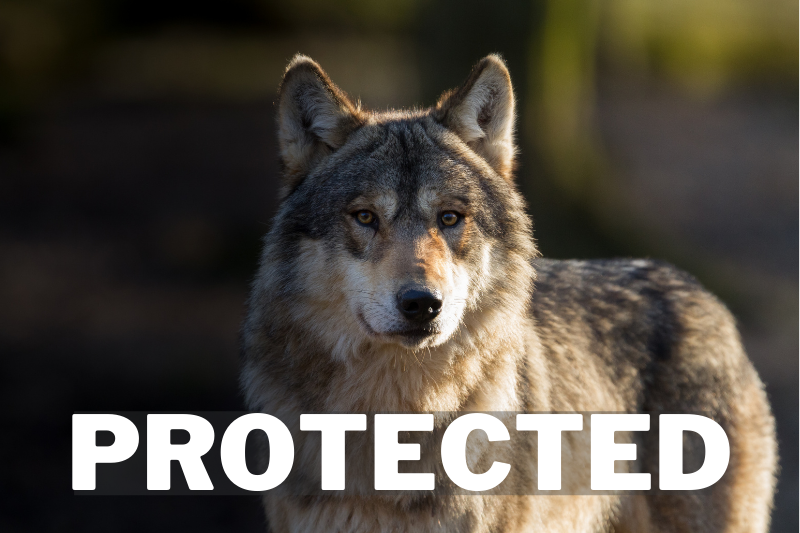In October of 2020, the US Fish and Wildlife Service removed wolves from the endangered species list, leaving them vulnerable to state-sponsored hunts. It wasn’t long before states like Wisconsin began holding these hunts, during which wolf populations suffered immensely. Since the delisting and its aftermath, we’ve been working to protect wolves on the local, state and national level.
 Our work includes a lawsuit challenging the decision to delist wolves, which was introduced by a coalition of environmental groups last year. On February 10, 2022, a federal judge made a ruling on this lawsuit, in which he overturned the delisting.
Our work includes a lawsuit challenging the decision to delist wolves, which was introduced by a coalition of environmental groups last year. On February 10, 2022, a federal judge made a ruling on this lawsuit, in which he overturned the delisting.
That’s right - wolves have been relisted!
While elaborating on the ruling, Judge White cited that the delisting decision did not consider the best available science or potential ramifications on wolf populations (Partlow, 2022).
So what does this all mean for Wisconsin’s wolf population? Well, it means that our wolves are protected by the Endangered Species Act and therefore cannot be hunted, poisoned or trapped. It also means that the Wisconsin Department of Natural Resources (DNR), who have been rushing to put together a new wolf management plan in time for the next harvest, must now shift their focus to coexistence and non-lethal management techniques.
While our wolves are safe for the time being, we have to prepare for the possibility that their safety will be threatened again. This includes encouraging our federal administration to support Judge White’s ruling, which they have 60 days to appeal.
We must also encourage the Wisconsin DNR to slow down their process of creating a new wolf management plan so that they can adequately consider all relevant aspects of wolves’ role in our ecosystem. We need to use this time to ensure our Wolf Management plan centers on science and Tribal input.
We can also protect the future of our wolf population through the Wisconsin Conservation Congress (WCC). In Wisconsin, citizens have the right to submit resolutions to be voted on by their peers and, if successful, be presented by the WCC to the Wisconsin DNR. In the event that wolves are delisted and another harvest is held, we can use this process to ensure that it occurs as ethically as possible by submitting resolutions to restrict troublesome wolf hunting practices.
The public vote on resolutions will take place online from April 11 to April 14, 2022. RSVP here.
Blog written by Wildlife Team member and Program Aide Caitlin Moeller